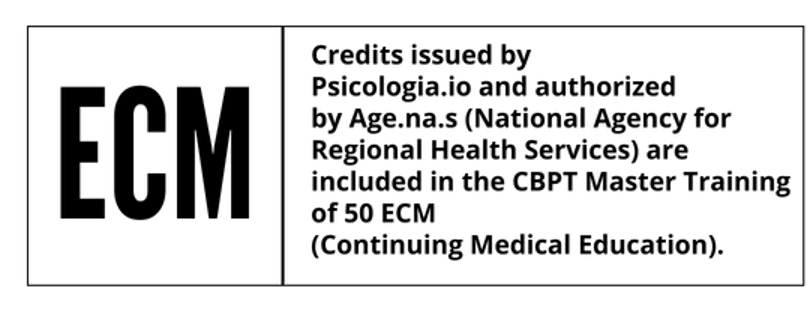PRE CONFERENCE WORKSHOPS
Preconference workshops will be held on Friday, July 10, 2026 at Philadelphia College of Osteopathic Medicine (PCOM).
You can sign up for one or two of these workshops. These can be paid for at the time of conference registration.
Please note that there are a total of 5 workshops, however, more than one workshop will be held at each time. Therefore, you MUST make sure that you do not sign up for two workshops that are taking place at the same time.
Early registration- $50 per workshop
Registration after May 1, 2026- $60 per workshop
Student registration $25 (no early discount)
Friday, July 10, 2026
CBPT for Anxious Children (2 CE)

Meena Dasari, Ph.D.

Phuonguyen (Hailey) V. Chu, M.A.

Samantha Martin

Rachel McLaine
Participants will learn how to implement Cognitive Behavioral Play Therapy for Anxiety Disorders in young children. This workshop will include brief background and session-by-session descriptions. Case examples and practice opportunities will be used to enhance learning.
LEARNING OBJECTIVES
At the end of this training workshop, participants will be able to:
- List 5 key techniques of Cognitive Behavioral Play Therapy adapted from cognitive behavior therapy.
- Identify 3 child developmental factors to consider in Cognitive Behavioral Play Therapy case conceptualization and treatment planning.
- Describe the 4 steps of the CALM plan that children are taught to practice during exposure sections of Cognitive Behavioral Play Therapy
CBPT for child sexual abuse

Sueann Kenney-Noziska, MSW
This workshop will emphasize using cognitive behavioral play therapy (CBPT) with victims of childhood sexual abuse (CSA). Treatment components from evidence-based practice models and CBPT will be integrated to create abuse-informed interventions that are developmentally appropriate & clinically sound.
LEARNING OBJECTIVES
At the end of this training workshop, participants will be able to:
- Describe areas of clinical need for children and adolescents who have been victims of childhood sexual abuse and discuss ways in which CBPT can be utilized to meet these needs
- Identify CBPT interventions to use in clinical practice with sexually traumatized children & adolescents
- Link specific CBPT interventions with core components of trauma treatment
CBPT for affect regulation in children

Athena Drewes, Psy.D.
This experiential and didactic workshop will help participants identify reasons for affect dysregulation, methods to assess how best to regulate emotions, the therapeutic powers of play needed to be utilized, and CBPT play-based techniques for use within treatment.
LEARNING OBJECTIVES
At the end of this training workshop, participants will be able to:
- Helped to analyze a prescriptive play therapy treatment approach that can utilize directive, non-directive and integrative modalities in a CBPT treatment approach.
- Able to identify the links between the Therapeutic Powers of Play and developmentally, neuro-sequentially, appropriate practice.
- Able to describe four play-based techniques to apply in helping children build a feelings vocabulary, identify and safely express angry feelings, begin their narrative of trauma experiences and learn how to regulate intense feelings.
Turtle Magic Intervention for young children (2 CE)

Eva Feindler, Ph.D.

Alexandra Schira, Psy.D.

Kristen Ullrich, PsyD
This workshop will focus on a full description of the TMI Cognitive Behavior Play Therapy intervention for young children who have anger and aggression problems. Using specific CBT skills integrated into play therapy strategies, children will learn effective emotion regulation approaches to problem-solving.
LEARNING OBJECTIVES
At the end of this training workshop, participants will be able to:
- Explain the theoretical underpinnings of the Turtle Magic Intervention play therapy approach.
- Discuss criteria can be used to assess children’s appropriateness for inclusion in TMI training.
- Describe and demonstrate the four components of each of the individual TMI sessions with an emphasis on the integration of play therapy strategies.
- Describe and demonstrate the steps of problem-solving suggested via the use of the book Turtle Magic.
- Summarize how specific play therapy strategies are integrated into each of the 8 intervention sessions.
- Discuss the advantages and disadvantages of implementing TMI with individual children versus small groups.
Movies, Music and Books, Oh My! Creative Strategies in CBPT

Lisa Remey, M.Ed.
Have you ever noticed the power of music and movie themes and wondered how to incorporate them into your CBPT approach? This experiential session, featuring case examples, will prompt you to think creatively about integrating movies, music, and books into sessions.
LEARNING OBJECTIVES
At the end of this training workshop, participants will be able to:
- Identify how to incorporate metaphors and symbols found in movies and music in both structured and unstructured portions of a CBPT session.
- Describe how to process movies, music, and storytelling in CBPT play therapy sessions to meet treatment goals.
- List four cognitive behavioral play therapy interventions combined with movies, music, and bibliotherapy.
Italian participants can request credits for the event through the Psicologia.io platform. Credits issued by Psicologia.io are authorized by Age.na.s (National Agency for Regional Health Services) for ECM (Continuing Medical Education). These credits are only available for the conference presentations that are eligible. No credits will be issued for the preconference workshops.




